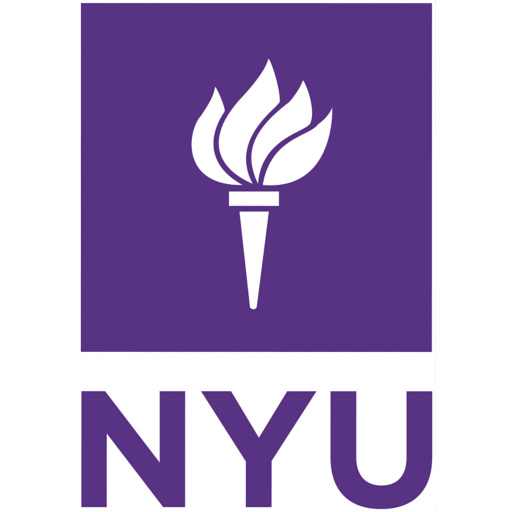Should NYU-Tisch change its name?

Many institutions are changing their names, dropping connections to “benefactors” whose practices they no longer accept—slaveholders, opiate pushers, etc. Municipalities are taking down statues of slave traders and the like.
NYU prides itself as promoting social justice, yet what of Tisch? NYU-Tisch is its school of the arts and one of its most prestigious schools. I love the place—the first NYU school I taught in, specifically the Interactive Telecommunications Program. The students and I—with MTA’s Arts for Transit program, and the first company I co-founded, Submedia—created this big public art piece:
Below is just the kids and family from that video.
Who is NYU-Tisch named for?
According to the New York Times in 1982, “New York University’s School of the Arts has been given $7.5 million by Laurence A. Tisch and Preston Robert Tisch, it was announced yesterday by Dr. John Brademas, president of the university. The school has been renamed the Tisch School of the Arts.”
Who are Laurence A. Tisch and Preston Robert Tisch?
Wikipedia says, “Laurence Alan “Larry” Tisch (March 5, 1923 – November 15, 2003) was an American businessman, Wall Street investor and billionaire. He was the CEO of CBS television network from 1986 to 1995. With his brother Bob Tisch, he was part owner of Loews Corporation.”
What is Loews Corporation?
According to Wikipedia‘s history of Loews, the Tisch brothers bought a controlling interest in Loews and “soon diversified the Loews business, successfully venturing into a variety of areas as the 1960s and 1970s progressed. Loews acquired Lorillard, a tobacco company, in 1968.”
Lorillard—not just any tobacco company
Some bits about Lorillard:
- Testifying under oath before Congress in 1994, Lorillard’s CEO Andrew Tisch said that he did not believe that nicotine is addictive nor that cigarette smoking causes cancer.
- In 2006, Lorillard was convicted of racketeering under RICO, along with Philip Morris and R. J. Reynolds Tobacco Company. The Supreme Court has upheld the verdict, in which Judge Kessler wrote,
[W]hat this case is really about … is about an industry, and in particular these Defendants, that survives, and profits, from selling a highly addictive product which causes diseases that lead to a staggering number of deaths per year, an immeasurable amount of human suffering and economic loss, and a profound burden on our national health care system … In short, Defendants have marketed and sold their lethal product with zeal, with deception, with a single-minded focus on their financial success, and without regard for the human tragedy or social costs that success exacted.
- In 2008, Lorillard Tobacco was entered into a separation agreement with its parent company Loews, and became an independent publicly traded company.
For 40 years from 1968 to 2008, the Tisch family made money racketeering, “selling a highly addictive product which causes diseases that lead to a staggering number of deaths per year, an immeasurable amount of human suffering and economic loss, and a profound burden on our national health care system,” and the CEO, a Tisch, testifying that he didn’t believe nicotine addictive or smoking carcinogenic.
Right in the middle of that period NYU took their money. For 20 years it looked the other way, it seems, from its namesake.
Is tobacco NYU’s legacy?
I’m reading a fascinating book, Industrial Strength Denial, that documents several industries that hurt and killed people and extended their destruction by obfuscating and denying—including slavery, leaded gasoline, and subprime loans. It also treats tobacco, stating
The death toll associated with cigarettes is catastrophic. Tobacco is blamed for causing one hundred million deaths worldwide in the twentieth century, more than those killed in both world wars, and during the twenty-first century cigarettes could kill one billion people. The World Health Organization estimates that over seven million people die every year from smoking-related illnesses.
In the United States between 1964 and 2014, nearly twenty-one million people are estimated to have died from smoking-related causes, including over six million from cancer, over seven million from cardiovascular and metabolic diseases, nearly four million from pulmonary diseases, and over two million from secondhand smoke exposure. More than 480,000 people die each year in the United States from smoking-related causes, a figure that dwarfs the nation’s combined deaths from all accidents (169,936), suicides (47,173), and murders (19,510).
Is this the company NYU keeps?
How about NYU’s Sackler Institute of Graduate Biomedical Sciences?
NYU also runs a Sackler institute. If you don’t know the Sacklers, I’ve seen them characterized as the largest force behind the opiate epidemic. You might start with the New Yorker’s The Family That Built an Empire of Pain or Esquire’s The Secretive Family Making Billions From the Opioid Crisis. Prepare to feel sick.
Read my weekly newsletter

On initiative, leadership, the environment, and burpees